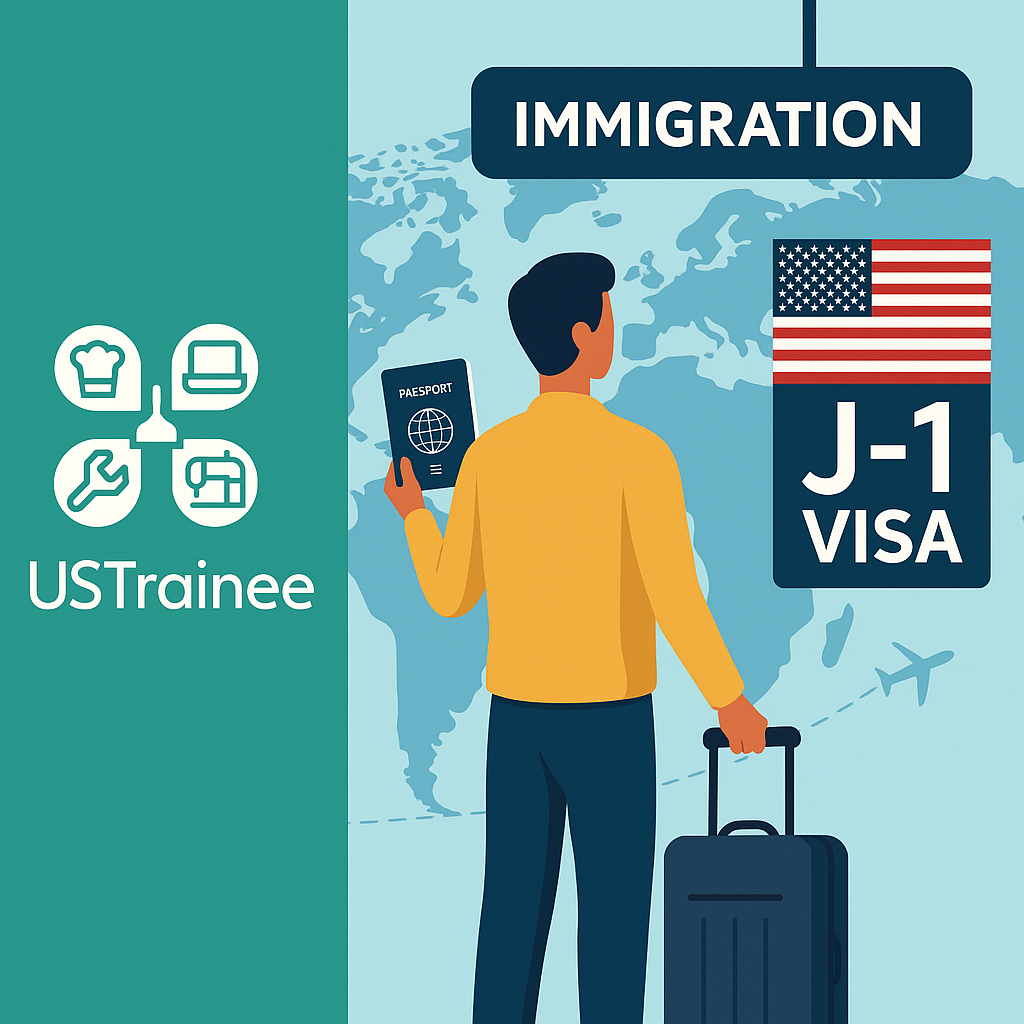A Complete Guide to J-1 Trainee Sponsorship in the United States
The J-1 Trainee Program is one of the most valuable cultural exchange opportunities offered by the United States. It allows foreign professionals to gain hands-on experience in their chosen field while immersing themselves in American culture and workplace practices. At the heart of this program is the J-1 sponsorship system, which ensures that every trainee has a structured, compliant, and enriching training plan.
This article explains in detail how J-1 sponsorship works, who can sponsor, and what both trainees and host companies need to know.
What Is J-1 Sponsorship?
A J-1 Sponsor is a U.S. Department of State–designated organization authorized to administer the Exchange Visitor Program. Sponsors act as intermediaries between trainees, host companies, and the U.S. government. They issue the necessary documentation (such as the Form DS-2019 and the DS-7002 Training/Internship Placement Plan) and ensure compliance with federal regulations.
Without a sponsor, foreign nationals cannot obtain a J-1 Trainee visa, even if they have a U.S. company willing to host them.
Who Are the Sponsors?
Sponsors are typically nonprofit organizations, educational institutions, cultural exchange organizations, or specialized training agencies that have been vetted and approved by the Department of State. They maintain strict oversight of every J-1 program, making sure that it remains a true exchange experience rather than simple employment.
Examples of well-known J-1 sponsors include:
-
CIEE (Council on International Educational Exchange)
-
Cultural Vistas
-
Intrax Global Internships
-
InterExchange
-
The Washington Center
-
Global Experiences
A complete, searchable list of designated sponsors can be found on the official U.S. Department of State website.
Roles and Responsibilities of a J-1 Sponsor
Sponsors serve several critical functions throughout the lifecycle of a J-1 trainee program:
-
Program Screening and Eligibility
-
Review candidate qualifications (education, experience, language ability).
-
Ensure candidates meet Department of State eligibility criteria.
-
-
Training Plan Development (DS-7002)
-
Work with the host company and trainee to create a phase-by-phase training plan.
-
Define clear learning objectives, supervision methods, and evaluation criteria.
-
-
Issuance of Documentation
-
Provide the DS-2019 Certificate of Eligibility, required for the J-1 visa interview.
-
Validate and approve the DS-7002 Training/Internship Placement Plan.
-
-
Ongoing Program Monitoring
-
Maintain regular contact with both trainee and host company.
-
Conduct check-ins, track progress, and verify compliance with labor laws.
-
-
Support Services
-
Provide guidance on cultural adjustment, health insurance, and emergency support.
-
Host Companies and Their Role
Although the sponsor holds official responsibility, host companies also play a key part. They must:
-
Provide a structured, supervised training environment.
-
Follow the DS-7002 learning objectives and avoid assigning unskilled labor.
-
Designate a supervisor/mentor to oversee the trainee.
-
Cooperate with the sponsor in evaluations and compliance checks.
Host companies cannot independently sponsor a J-1 trainee; they must work through an official sponsor organization.
Costs of J-1 Sponsorship
The cost of J-1 sponsorship varies by sponsor and program length. Typically, fees range from $1,000 to $3,000 or more, covering:
-
Application and screening
-
DS-2019 and DS-7002 processing
-
SEVIS (Student and Exchange Visitor Information System) registration
-
Program monitoring and support
-
Health insurance coverage (mandatory)
Host companies sometimes share these costs, while in other cases, trainees pay them directly.
Benefits of J-1 Sponsorship
For trainees:
-
Access to structured, legal training in the U.S.
-
Enhanced career prospects with U.S. professional experience.
-
Cultural immersion and international networking.
For host companies:
-
Opportunity to bring in international talent.
-
Cross-cultural exchange that enriches the workplace.
-
Building long-term global professional relationships.
For the U.S. government:
-
Promotion of mutual understanding between Americans and people from other countries.
How to Find a J-1 Sponsor
-
Use the State Department’s Official Sponsor List – Search by program type (“Intern” or “Trainee”) and field.
-
Contact Cultural Exchange Organizations – Many sponsors work directly with foreign applicants.
-
Work With a Host Company – If you already have a U.S. employer interested in hosting you, ask them which sponsors they partner with.
-
LinkedIn and Professional Networks – Many sponsors and partner organizations actively recruit candidates through professional channels.
Conclusion
The J-1 Trainee visa program would not be possible without the network of designated sponsors. These organizations act as the bridge between international trainees, U.S. host companies, and the Department of State, ensuring that every program is structured, educational, and compliant with U.S. law.
If you are planning to pursue a J-1 Trainee program, your first step should be to identify a reliable sponsor. A strong sponsor not only helps you secure your visa but also ensures that your training experience in the United States is safe, valuable, and transformative.

